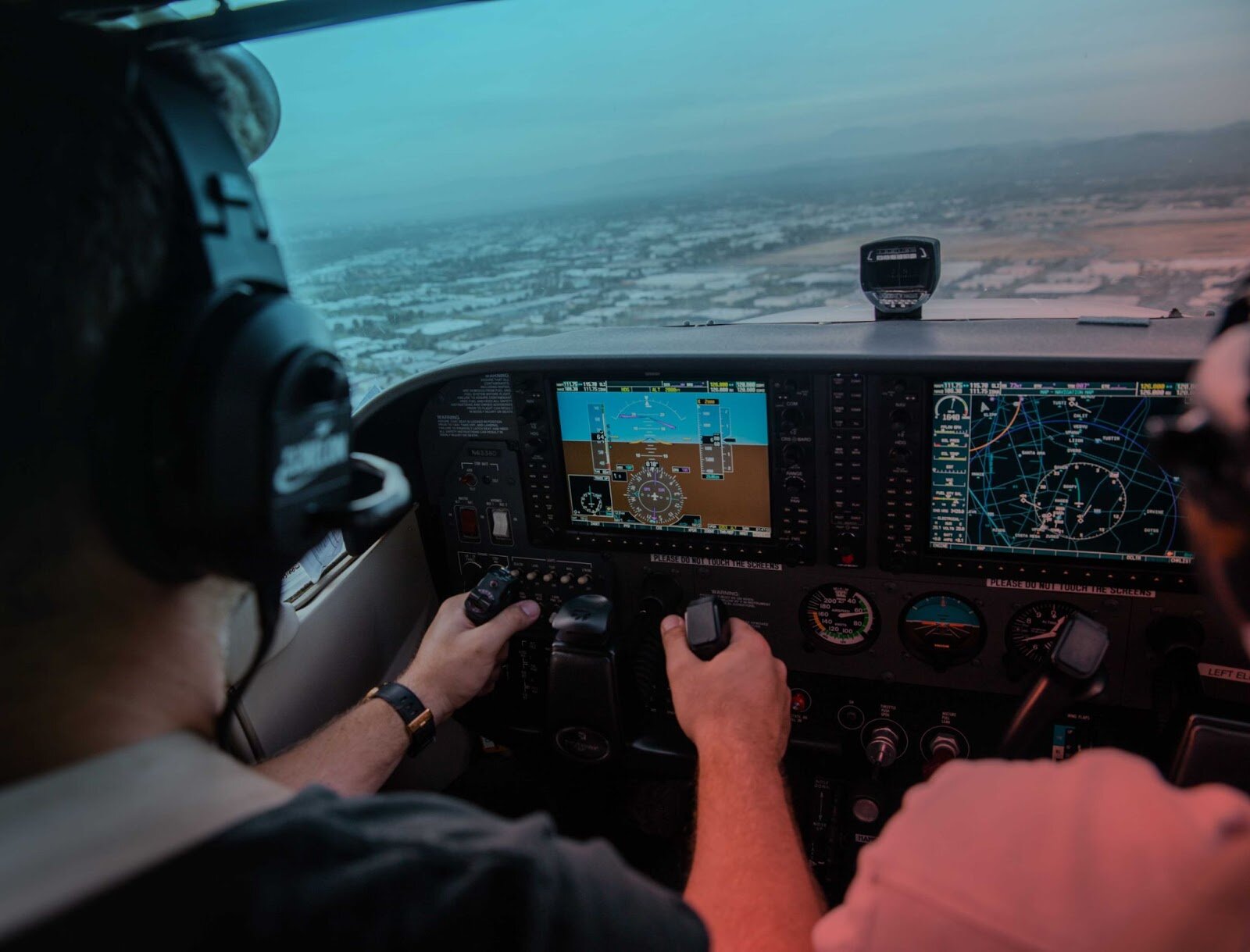HOW TO BECOME A PILOT
Dreaming of soaring through the skies instead of a 9-5?
Being a pilot is probably one of the most exciting jobs out there. However, with all that thrill comes a lot of responsibility.
If working in the aviation industry sounds up your street, you need to be completely sure of it before starting out, as training costs are hella expensive - ranging between £70,000 and £120,000!
What will I need to work in Aviation?
It’s important to note that you must be over 18 to start pilot training, and you cannot get an Airline Transport Pilot Licence until you’re 21.
To complete your training and qualify as a pilot it may take between 16-18 months if you have no prior experience.
To become a Commercial Airline Pilot (CPL) you need an Airline Transport Pilot Licence (ATPL) and a Class 1 Medical Certificate obtained beforehand.
GCSE passes in Maths, English and Science.
Although not a vital essential, A-Levels are desired.
If you decide to take an Aptitude Assessment Test, you will end up graduating with a CPL and an IR (Instrumental Rating). These combined make something called a ‘Frozen ATPL’, which enables you to apply for jobs as a Co-Pilot or First Officer. After 1,500 flying hours, you’ll be able to ‘unfreeze’ your ATPL, meaning you can then apply for jobs as a captain.
Pass a practical skills test, as well as theory exams in air law, operation procedures and radio navigation.
Pilot training schools typically offer both integrated and modular professional flight training schemes.
Let me break it down for you…
Integrated: If you have no past experience of flying, integrated courses incorporate theoretical study and practical experience, getting you your ATPL within 18 months. Courses are quite intense as you have to complete the training in just one go!
Modular: This training is completed in segments, so it’s way more flexible than integrated. Meaning you can work alongside your studies to pay off course fees. You'll need to already have a Private Pilot License and 150 hours of flying experience. Although this way of training is more affordable, it is more lengthy by taking longer to complete than the integrated training.
If you choose to train at a pilot training school, you better be prepared to pay the course fee yourself (which can be pretty expensive). Also beware that a job is not 100% guaranteed afterwards.
Airlines such as easyjet and British Airways do offer structured training programs for you to consider. Even though most of these structured programs are self-funded, they are definitely worth considering as there are high chances of bagging a job with the organisation on completion.
To apply for one of these major airlines' training schemes, you can visit the careers section on the websites of British Airways, Ryanair and easyJet.
If you would like to take the University approach, there are some universities running relevant courses. Such as Kingston University London and Buckinghamshire New University. (Links to their courses will be listed at the end of the blog).
Or maybe an apprenticeship would be better for you? You may have never thought about it but apprenticeships are a great way to gain a qualification with added hands-on experience. Plus you get to earn while you learn! It’s a Win-Win.
Let me introduce you to British Airways’ Cadet Programme. This training will be the first step to becoming a captain. If you’re up for the challenge, this course will transform you from having no experience, to going straight up to First Officer.
All you’ll need for the programme is:
Ability to work well under pressure and remain cool-headed.
Ability to use both verbal and mathematical skills to solve complex problems.
Passion and motivation.
Be an excellent team player.
Did you know that flying actually makes you smarter?
I’m serious. When becoming a pilot, you’ll gain knowledge and skills you never even expected. Like becoming better at planning ahead, having to do fast maths in your head, being a logical decision maker, and a meteorologist. Also learning good resource management, patience and knowing how to operate safely yet urgently.
Specific Skills and Attributes required to become a Pilot:
Huge passion for aviation.
Good spatial awareness.
Skill for numbers and data analysis.
Problem-solving skills.
Impeccable communication skills.
Ability to work well under pressure, remain calm and ability to think on your feet.
I hope this has helped you in determining whether this career path is right for you. I know all the intensive training can seem a little overwhelming, but for a career lifting you off the ground, it definitely seems worth it.
If you need any further info or help, or any questions regarding your career search, please don’t hesitate to get in touch with us.
Relevant Links:
Buckinghamshire New Uni: https://www.bucks.ac.uk/courses/undergraduate/bsc-hons-air-transport-commercial-pilot-training
Kingston Uni: https://www.kingston.ac.uk/undergraduate/courses/aviation-operations-with-commercial-pilot-training/
British Airways Cadet Programme: https://careers.ba.com/future-pilots
AUTHOR: GRACE MCGRATH - DIGITAL RESEARCHER

